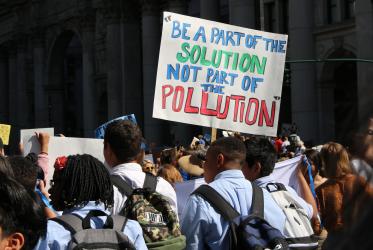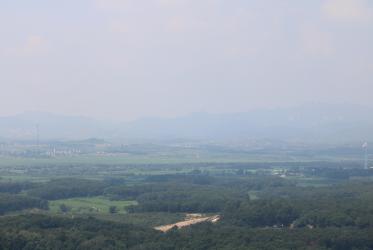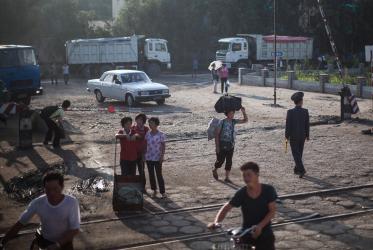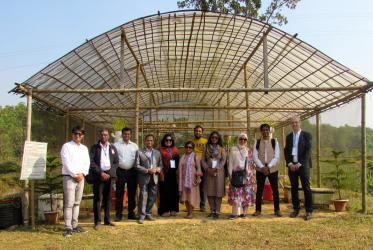Displaying 1 - 20 of 43
Unity is key when health crisis poses new challenges in Asia
28 February 2022
Climate crisis fuels existing water injustice
27 October 2021
WCC condemns massacre of farmers in Philippines
12 April 2019
Workshop in Bangladesh links climate, economic justice
07 February 2019
All pilgrim routes lead to COP24
11 December 2018
#WCC70: A prayer about health and healing
20 July 2018
Asian church leaders exchange ideas on diaconia
19 December 2017
“Overcoming economic injustice” vision of WCC’s Athena Peralta
23 February 2017
New videos help congregations hasten HIV response
20 October 2016
GEM school ends with hope for a better tomorrow
08 September 2016
A just financial and economic architecture is possible, students find
08 September 2016













